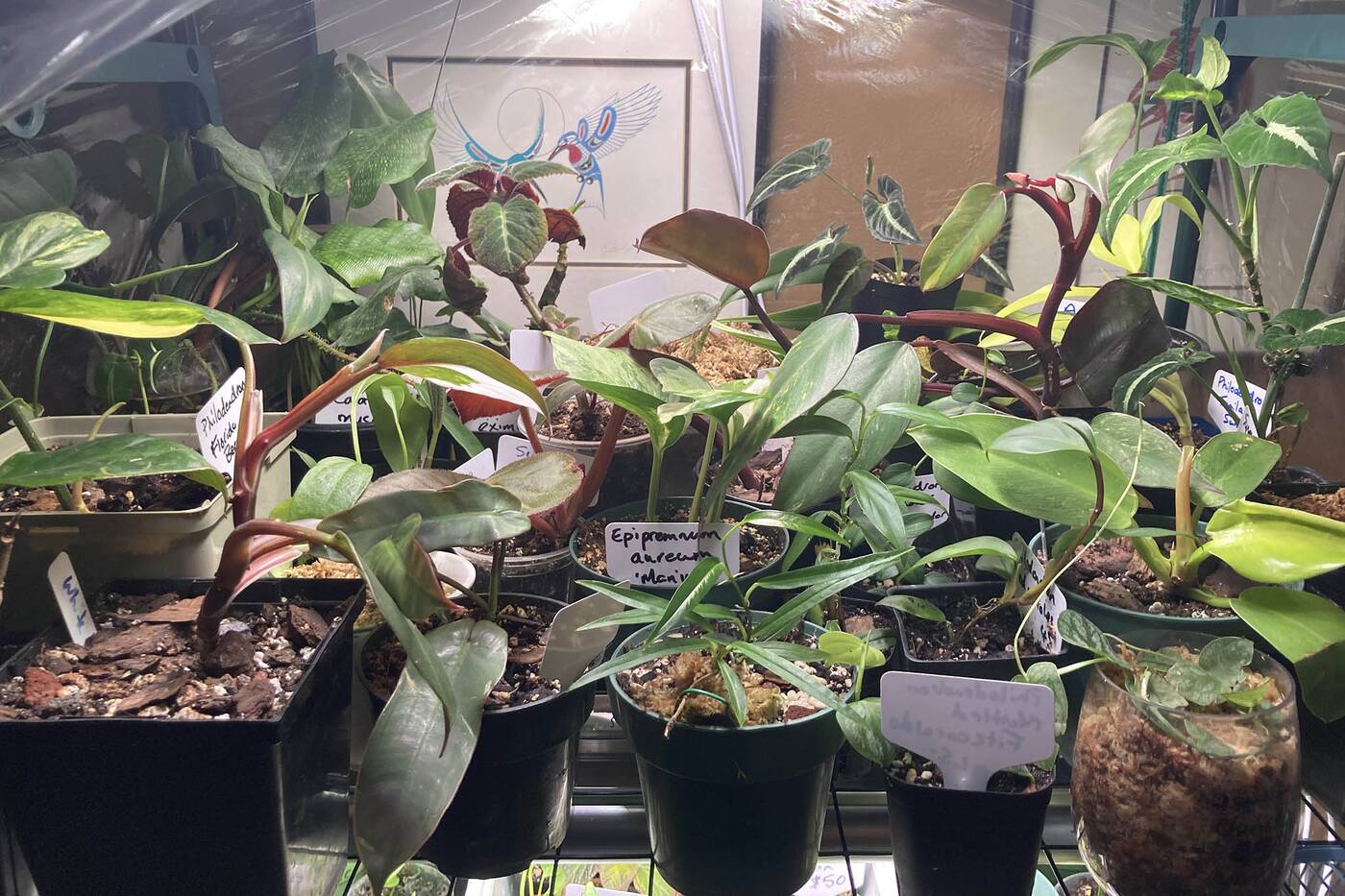
Why your plants are dying in Toronto this winter
Whether you're a certified plant parent or are just starting to earn your green thumb, you may have noticed your plants have been looking a little sad in Toronto this winter.
This, by no means, is a surprise given Toronto's cold and dry winter climate.
Paul Gellatly, Director of Horticulture at the Toronto Botanical Garden, told blogTO: "It's the time of year. It's one of the busiest times to buy plants because everyone is stuck inside, but it's one of the worst times of year to grow things."

Paul Gellatly, Director of Horticulture at the Toronto Botanical Garden. Photo by Jenny Rhodenizer.
Still, don't go fretting over your browned or wrinkled leaves — even if you've killed every plant you've ever owned, Gellatly, who has over 700 plants in his own collection, has the answers to your winter woes.
They need more sunlight
Gellatly explained that the sun is lower on the horizon during Toronto winters, so your plant may need more sunlight than it did in the summer.
To combat this lack of sunshine, he suggests southern exposure and that you "move your plants closer to the window. If they were set back 10 ft. before, maybe you need to move them up 5 ft. or 4 ft."
Your furnace is on
Given the chilly weather, many city dwellers crank up the heat, but your plants may not love the dry air that comes with it.
"Furnaces are on right now and they dry out the air a lot, so the edges of your leaves will go brown or crispy," he said.
"So I buy little humidifiers and I tuck them around my plant collections, and adding moisture in the air around them makes a big difference."
Your plant is near a window or door
It's well known that Toronto living spaces can be comically small but try to avoid putting your plant right near a cold draft.
"You want to make sure your plants aren't up against the windows. Give them a little space away from any drafts. If you're opening a window regularly in your condo, make sure there's not a plant right there, or by your front door for example. When you're coming in, the wind follows you, and you don't want that hitting your tropical plant."
You're overwatering
You may be guilty of doting on your plants a little too much with the boredom of being home all the time.
Gellatley suggests that you "let your plants dry out a bit," adding: "In the winter a lot of plants aren't actively growing, so if you stick to the same routine that you've had the rest of the year, the roots may rot and end up dying out."
Tap water contains chemicals
In cities like Toronto, tap water may be okay for people to drink, but some plants still prefer something more natural.
"It's what they use to clean the water to make it drinkable like chlorine that plants don't necessarily like," says Gellatly.
"Melting snow can be a good way to water your plants because there are no chemicals in that water, so it can be better than tap water for your plants."
He added: "Rainwater is also much better for the plants, but if you live in a condo and don't have access, distilled water can do the trick."
Buy the right plants
If you're new to the plant game and are wanting to start up your collection this winter, Gellatly suggests Sanseveria (Mother-in-law's tongue), a ZZ plant, or a basic but reliable Pothos.

A peek into Paul Gellatly's personal plant collection. Photo by Paul Gellatly.
Luckily, Toronto has no shortage of plant stores to find starter plants, with the horticulture industry booming throughout the COVID-19 pandemic.
His biggest piece of advice to plant parents? "Don't feel bad if you kill a plant; it happens, I'm a horticulturist, and I've killed plants."
He added: "Just because you didn't have luck with that one plant doesn't mean you won't have luck with a different one."
Hector Vasquez
Latest Videos
Latest Videos
Join the conversation Load comments







